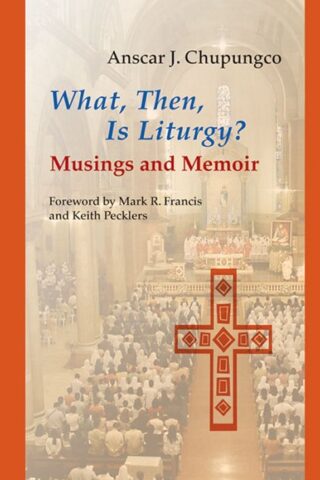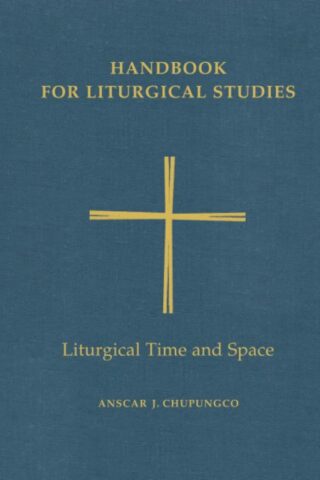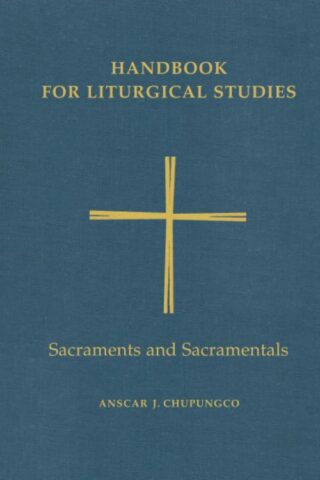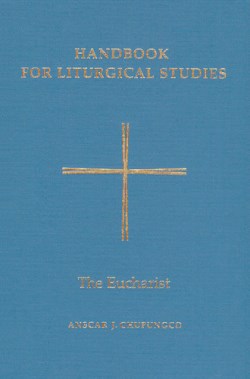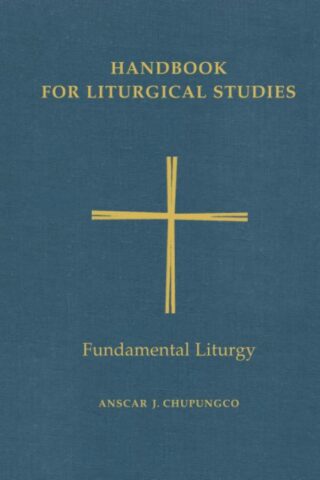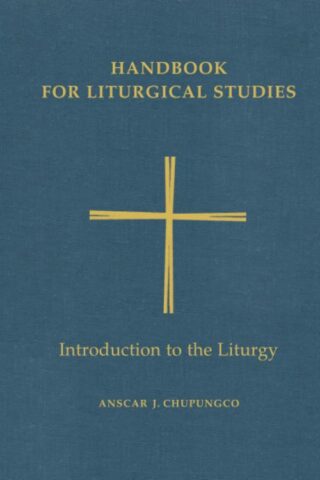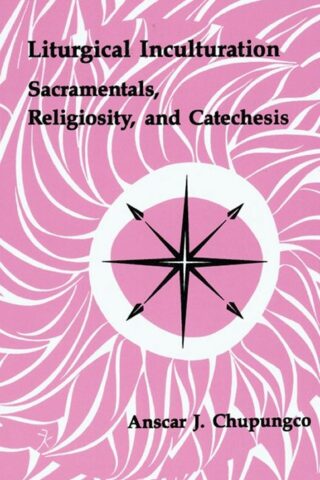Anscar Chupungco
Showing all 7 resultsSorted by latest
-
What Then Is Liturgy
$29.95Add to cartFather Anscar Chupungco fondly recalls his first class as a student at the Pontifical Liturgical Institute in 1965. Professor Salvatore Marsili-famed theologian, liturgist, and cofounder of the institute-entered the lecture hall, and after a prolonged and awkward silence finally asked, “And so, what is liturgy?”
This seemingly simple question underlies Chupungco’s untiring love for liturgy and his lifetime of searching for answers. His is a passion deeply rooted in tradition, which is evident in this volume. Relying on Scripture, patristic writers, and conciliar and postconciliar documents-and with great skill, prudence, and the fundamental virtue of obedience-he carefully examines current liturgical trends that are the subject of fierce debate. At a time when we focus so intently on the debate itself, Chupungco cautions us to remember: “At the end of the day what matters are not personal opinions but what truly contributes to making the prayer of the Church an encounter with the person of Christ.” It is this most sacred encounter that is at the heart of What, Then, Is Liturgy? And it is this encounter that will lead us day by day to the ultimate heavenly liturgy, our eternal and perfect offering of praise to God.
-
Liturgical Time And Space
$99.95Add to cartThe Handbook for Liturgical Studies provides a course of liturgical studies in five volumes. It is offered as a model, source, and reference for students of liturgy and liturgical ministry.
The Handbook differentiates from its predecessor Anamnesis, published by the Pontifical Liturgical Institute. First, the subjects in the liturgical ordo, history, and tradition are examined as components of the theology of liturgy. Next, the Handbook pays significant attention to the role played by the human sciences in the liturgy (psycho-sociology, anthropology, linguistics, and the arts.) Pastoral and spiritual considerations receive appropriate treatment in light of liturgical principles, and general models based on the meaning and purpose of the liturgy are suggested. The materials of the East and the non-Roman West are integrated with the Roman, providing a comprehensive vision of Christian worship.
More than forty authors from Asia, Africa, Latin America, North America, and Europe have contributed to the Handbook. Many are professors of the Pontifical Liturgical Institute in Rome. Each author, while drawing material from liturgical tradition and from ancient, medieval, and modern sources, writes also from a particular research and personal interest in a subject. Although diverse in style, the authors collectively express a spirit of fidelity to the Church, to its doctrine and tradition, and to its mission. The result is a cohesive view of the meaning, purpose, and celebration of Christian worship.
The editor’s goal in these volumes is for students to learn the methodology, historical setting, theological and spiritual doctrines, and the pastoral concerns of the liturgy. Through these volumes, readers are led not only to a scientific understanding of the liturgy but also to an active and spiritually fruitful participation in the ecclesial celebration of Christ’s mystery desired by the Second Vatican Council.
-
Sacraments And Sacramentals
$99.95Add to cartThe Handbook for Liturgical Studies provides a complete course of liturgical studies in five volumes. It is offered as a model, source, and reference for students of liturgy and liturgical ministry.
The Handbook for Liturgical Studies is marked by a number of traits which differentiate it from its predecessor Anamnesis, published by the Pontifical Liturgical Institute. First, the subjects in the liturgical ordo, history, and tradition are examined as sources and components of the theology of liturgy. Next, the Handbook pays significant attention to the role played by the human sciences in the liturgy (psycho-sociology, anthropology, linguistics, and the arts.) Pastoral and spiritual considerations receive appropriate treatment in light of liturgical principles, and general models based on the meaning and purpose of the liturgy are suggested. The materials of the East and the non-Roman West are integrated with the Roman, providing a comprehensive vision of Christian worship.
More than forty authors from Asia, Africa, Latin America, North America, and Eastern and Western Europe have contributed to the Handbook. Many are professors and graduates of the Pontifical Liturgical Institute in Rome. Each author, while drawing material from liturgical tradition and from ancient, medieval, and modern sources, writes also from a particular research and personal interest in a subject. Although diverse in style, the authors collectively express a spirit of fidelity to the Church, to its doctrine and tradition, and to its mission. The result is a cohesive view of the meaning, purpose, and celebration of Christian worship.
The editor’s goal through these volumes is for students to pay particular attention to the gradual unfolding of the material from Volume I to Volume V as well as to the methodology, historical setting, theological and spiritual doctrines, and the pastoral concerns in the Handbook. Through the study of these volumes, readers are led not only to a scientific understanding of the liturgy but also to an active and spiritually fruitful participation in the ecclesial celebration of Christ’s mystery desired by the Second Vatican Council.
Volume IV: Sacraments and Sacramentals contributes to a deeper understanding of the nature and purpose of sacraments and sacramentals and leads the reader to a more critical appreciation of Vatican II decrees and what the postconciliar reform has implemented. This fourth volume opens with a review of the basic litu
-
Eucharist
$99.95Add to cartThe Handbook for Liturgical Studies provides a complete course of liturgical studies in five volumes. It is offered as a model, source, and reference for students of liturgy and liturgical ministry.
The Handbook for Liturgical Studies is marked by a number of traits which differentiate it from its predecessor Anamnesis, published by the Pontifical Liturgical Institute. First, the subjects in the liturgical ordo, history, and tradition are examined as sources and components of the theology of liturgy. Next, the Handbook pays significant attention to the role played by the human sciences in the liturgy (psycho-sociology, anthropology, linguistics, and the arts.) Pastoral and spiritual considerations receive appropriate treatment in light of liturgical principles, and general models based on the meaning and purpose of the liturgy are suggested. The materials of the East and the non-Roman West are integrated with the Roman, providing a comprehensive vision of Christian worship.
More than forty authors from Asia, Africa, Latin America, North America, and Eastern and Western Europe have contributed to the Handbook. Many are professors and graduates of the Pontifical Liturgical Institute in Rome. Each author, while drawing material from liturgical tradition and from ancient, medieval, and modern sources, writes also from a particular research and personal interest in a subject. Although diverse in style, the authors collectively express a spirit of fidelity to the Church, to its doctrine and tradition, and to its mission. The result is a cohesive view of the meaning, purpose, and celebration of Christian worship.
The editor’s goal through these volumes is for students to pay attention to the gradual unfolding of the material from Volume One to Volume Five as well as to the methodology, historical setting, theological and spiritual doctrines, and the pastoral concerns in the Handbook. Through the study of these volumes, readers are led not only to a scientific understanding of the liturgy but also to an active and spiritually fruitful participation in the ecclesial celebration of Christ’s mystery desired by the Second Vatican Council.
Volume III: The Eucharist contributes to the reflection on the meaning and purpose of the eucharistic celebration. It also offers to teachers and students of liturgy a handbook for studying this subject according to a system based on historical development, theology and doctrine, liturgical texts and traditions in bo
-
Fundamental Liturgy
$99.95Add to cartThe Handbook for Liturgical Studies provides a complete course of liturgical studies in five volumes. It is offered as a model, source, and reference for students of liturgy and liturgical ministry.
The Handbook for Liturgical Studies is marked by a number of traits which differentiate it from its predecessor Anamnesis, published by the Pontifical Liturgical Institute. First, the subjects in the liturgical ordo, history, and tradition are examined as sources and components of the theology of liturgy. Next, the Handbook pays significant attention to the role played by the human sciences in the liturgy (psycho-sociology, anthropology, linguistics, and the arts.) Pastoral and spiritual considerations receive appropriate treatment in light of liturgical principles, and general models based on the meaning and purpose of the liturgy are suggested. The materials of the East and the non-Roman West are integrated with the Roman, providing a comprehensive vision of Christian worship.
More than forty authors from Asia, Africa, Latin America, North America, and Eastern and Western Europe have contributed to the Handbook. Many are professors and graduates of the Pontifical Liturgical Institute in Rome. Each author, while drawing material from liturgical tradition and from ancient, medieval, and modern sources, writes also from a particular research and personal interest in a subject. Although diverse in style, the authors collectively express a spirit of fidelity to the Church, to its doctrine and tradition, and to its mission. The result is a cohesive view of the meaning, purpose, and celebration of Christian worship.
The editor’s goal through these volumes is for students to pay attention to the gradual unfolding of the material from Volume One to Volume Five as well as to the methodology, historical setting, theological and spiritual doctrines, and the pastoral concerns in the Handbook. Through the study of these volumes, readers are led not only to a scientific understanding of the liturgy but also to an active and spiritually fruitful participation in the ecclesial celebration of Christ’s mystery desired by the Second Vatican Council.
What concepts must one have in order to understand and explain the nature and purpose, the plan and actualization, and the relational character of the liturgy? Volume 2: Fundamental Liturgy addresses this question in three parts-epistemology, celebration, and human sciences-which develop the foundational concepts of
-
Introduction To The Liturgy
$99.95Add to cartThe Handbook for Liturgical Studies provides a complete course of liturgical studies in five volumes. It is offered as a model, source, and reference for students of liturgy and liturgical ministry.
The Handbook for Liturgical Studies is marked by the following traits which differentiate it from its predecessor Anamnesis, published by the Pontifical Liturgical Institute. First, the subjects in the liturgical ordo, history, and tradition are examined as sources and components of the theology of liturgy. Next, the Handbook pays significant attention to the role played by the human sciences in the liturgy (psycho-sociology, anthropology, linguistics, and the arts.) Pastoral and spiritual considerations receive appropriate treatment in light of liturgical principles, and general models based on the meaning and purpose of the liturgy are suggested. Finally, the materials of the East and the non-Roman West are integrated with the Roman, providing a comprehensive vision of Christian worship.
The editor’s goal through these volumes is for students to pay attention to the gradual unfolding of the material from Volume One to Volume Five as well as to the methodology, historical setting, theological and spiritual doctrines, and the pastoral concerns in the Handbook. Through the study of these volumes, readers are led not only to a scientific understanding of the liturgy but also to an active and spiritually fruitful participation in the ecclesial celebration of Christ’s mystery desired by the Second Vatican Council.
-
Liturgical Inculturation : Sacramentals Religiosity And Catechesis
$29.95Add to cartPerhaps nothing is as important to the future of the Church as continuing to make the liturgy meaningful to those who celebrate it. Inculturation, “the dynamic translation of the typical editions into the cultures of local Churches,” is the key.
Inculturation as a branch of liturgical study has a dauntingly wide scope. It covers the areas of history and theology, liturgical and cultural principles, process and methods, sacraments and sacramentals, Liturgy of the Hours, liturgical year, liturgical music, liturgical arts and furnishings, and such related topics as popular religiosity and catechesis. So where does the average pastor, liturgist, or student begin?
With this volume the reader is introduced to the different technical terms expressing the relationship between liturgy and culture (indigenization, incarnation, contextualization, adaptation, acculturation … ). The subsequent discussion on the question of sacramentals, popular religiosity, and liturgical catechesis explains how these disparate topics share the same basic concern of inculturation.
Throughout the book the focus is on method. Method encompasses both how one may remain true to the liturgy while also considering what culture offers the liturgy or requires of it. The question of how creativity relates to inculturation is also answered.
For the serious student of the liturgy, whether or not you serve a culturally diverse community, this work provides foundations, principles, and methods for creating a liturgy of the people and for the people.

